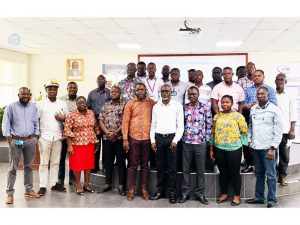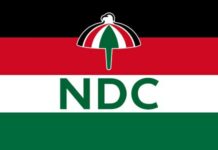
The presence of a nuclear plant in the country will not cause people to contract cancer, Dr Seth Debrah, Director, Nuclear Power Institute, Ghana Atomic Energy Commission (NPI-GAEC) has said.
Currently there is no nuclear power plant in Ghana but there are many people who have been diagnosed to be living with cancer. Also note that it is the same radiation that is used to cure cancer,” he said.
He explained that the processes leading to the building, operation and decommissioning of nuclear plants followed laid down protocols by the International Atomic Energy Agency (IAEA) aimed at ensuring the safety of the people and the environment.
The development of new nuclear reactor technologies had prioritised safety, ensured a minimal interaction with reactors and instituted effective and efficient monitoring of radiation at facilities, he added.
Dr Debrah was responding to a question on radiation exposure during a one-day stakeholder engagement organised by Nuclear Power Ghana (NPG) for managers and key staff of the Hydro Generation Department of the Volta River Authority in Akosombo, in the Eastern Region.
The meeting forms part of NPG’s activities to inform and educate officials on its mandate, the status of the Nuclear Power Project, expose them to the numerous job diversities and opportunities in the Project as well as to demystify the negative perceptions about nuclear power.
As Akosombo and Kpong hydropower plants are projected to supply reduced power below 25 per cent in 2025, Ghana is preparing to build its first commercial nuclear power plant, to provide a reliable, safe, affordable and clean baseload to support sustainable development.
Dr Debrah said on a daily basis people were exposed to doses of radiation from the sun, medical x-rays, and consumption of food items like cassava and banana which contain potassium 40, a radioactive isotope.
“Do you know that the level of radiation a person is exposed to when he or she boards an aircraft from Accra to the United Kingdom and back is more than the level radiation a nuclear plant worker is exposed to in a year?” He asked.
He said there were over 400 nuclear plants worldwide and countries such as France, a leading exporter of power to European countries, generates more than 70 per cent of its power from nuclear plants.
Dr Stephen Yamoah, the Executive Director of NPG, said the Ghana Atomic Energy Commission had been operating a research reactor over the years and had not encountered any challenge – an assurance that Ghana had the expertise to safely operate a nuclear power plant.
He clarified that radiation exposure only became harmful when an individual exceeded the normal exposure limit.
Asked about key milestones, Dr Archibold Buah-Kwofie, Deputy Director of NPI-GAEC, said the NPG had the capacity to achieve its targets but the process partly depended on government’s commitment. For example, as part of the process, the Government needed to make a declaration which is yet to be done, he said.
Mr Kweku Sarpong, the Plant Manager of the Akosombo Generating Station, Hydro Generation Department of the VRA, pledged the Department’s support with its experience to make the project successful. He said in the midst of energy transition and Ghana’s international climate commitment, nuclear power was the best option for Ghana and urged the public to support the NPG.
By Albert Ansah









